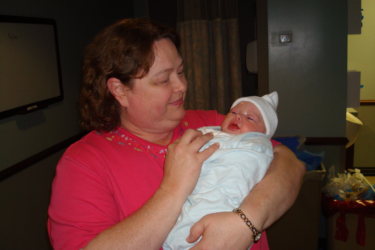
Oh, the Tangled Web they Weave
Did you ever lie to your parents when you were a teenager? Be honest with yourself. Not even a teeny, tiny “white” lie?
Fiction: Good children never lie.
Fact: Children aren’t perfect and lying is common in adolescence.
Telling tall tales
Parents may serve as role models, even if unintentionally. Adults often use “white lies” to spare hurt feelings or embarrassment. For instance, you might tell a friend her haircut is adorable after having said just the opposite behind her back, but in front of your child.
Clinical assistant professor of psychiatry at LSU-NO and Baton Rouge child psychiatrist Donna B. Fargason, MD says, “What we show our children with our actions is what they’re going to emulate. Lying is lying no matter the subject. It’s a very tricky situation, but lying is always unethical.”
By adolescence, however, teens understand the difference between “white lies” to spare feelings and lying to get one’s own way. Teens lie for a variety of reasons, such as avoiding consequences or seeking more freedom than their parents allow. If a teen has learned—either by example or from personal experience—that bending the truth will help him get his way, lying may seem like a good option.
Loren Buckner, LCSW, a psychotherapist and the author of ParentWise: The Emotional Challenges of Family Life and How to Deal with Them, explains, “Pleasing their friends becomes more important than following the rules. When teenagers have to choose between lying to parents and disappointing a friend, parents often lose that coin toss.”
Choosing consequences
Teens don’t tend to think about consequences ahead of time. Parents should discuss various scenarios with their teen to illustrate what can happen when a lie leads to danger. If parents don’t know their teen’s whereabouts and trouble occurs, they are unable to help. Teens should be told that lies, no matter how big or small, can lead to more complicated problems with more severe consequences.
Dr. Fargason advises that parents take lying very seriously, as one lie can be a “gateway to bigger lies.” She finds that talking through a situation without letting the child know you are aware of his lies is preferable. “If a parent can talk in a neutral way, calm down the child and separate the conversation from the actual incident, they can talk through the problem with their child. Accusing can make kids defensive, so try to give them an out.” Dr. Fargason suggests telling your child you know they had a difficult decision to face, and that you yourself do not know if you would have known what to do.
Parents should be concerned if lying becomes more frequent. This can be a sign of a more serious problem. However, belittling or shaming a teen can make matters worse. “Teens need to know they’re loved, even when they get into trouble,” says Buckner.
Be a lie detective
How does a parent recognize their teen is lying? Is subtle body language a good indicator, or should parents look for other things, such as conspicuous changes to a story?
Dr. Fargason says that there is no single way to detect when a teen is lying. “It’s terrifically difficult,” she says. “Some parents can tell little clues that their children do every time that they lie—a lot of times they won’t look you in the eye—but there is no general way to tell.
The best advice is to communicate with your child, establish curfews and follow through if you suspect your teen is being dishonest.





